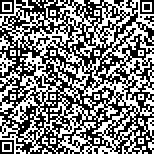| 引用本文: |
汤丽珠,李长辉,张坤木,肖爱俤,潘政炜,林洋.推拿结合等速训练配合五禽戏治疗膝骨关节炎的临床疗效观察[J].湖南中医药大学学报,2019,39(7):879-884[点击复制] |
|
| |
|
|
| 本文已被:浏览 3958次 下载 1930次 |
| 推拿结合等速训练配合五禽戏治疗膝骨关节炎的临床疗效观察 |
| 汤丽珠,李长辉,张坤木,肖爱俤,潘政炜,林洋 |
| (福建中医药大学附属第二人民医院, 福建 福州 350003;福建中医药大学针灸学院, 福建 福州 350003) |
| 摘要: |
| 目的 观察推拿结合等速运动训练配合五禽戏对膝关节骨性关节炎患者的临床疗效。方法 选取2016年12月至2017年12月在福建省第二人民医院就诊的KOA患者90例,按照随机数字表随机分成3组:A组(推拿结合等速运动训练配合五禽戏),B组(推拿结合等速运动训练),C组(推拿配合五禽戏),每组各30例。治疗频次3组都是隔天治疗1次,连续10次为1个疗程,共1个疗程。观察3组的临床总有效率,治疗前后组内及组间的VAS评分、Lysholm评分、膝关节周围肌力、膝关节屈伸活动度。结果 3组KOA患者的临床显效率两两比较差异有统计学意义(P<0.05),A组最佳,B、C组次之。治疗后3组的VAS、Lysholm评分与治疗前比较差异有显著统计学意义(P<0.01);但是组间比较差异没有统计学意义(P>0.05)。3组Lysholm评分中的上楼能力、不稳定评分治疗前后比较,差异有显著统计学意义(P<0.01);治疗后3组患者的上楼能力、不稳定评分两两比较差异均有统计学意义(P<0.05),且A组最佳,B、C组次之。治疗后3组膝关节活动度和峰值力矩的变化情况与治疗前比较差异有显著统计学意义(P<0.01);3组组间两两比较,活动度差异无统计学意义(P>0.05),峰值力矩差异有统计学意义(P<0.05),且A组最佳,B组次之,C组欠佳。结论 推拿结合等速运动训练配合五禽戏不仅可以缓解KOA患者疼痛,还可增强患者膝关节周围屈伸肌肌力、上楼能力及稳定性。 |
| 关键词: 膝关节骨性关节炎 推拿 等速运动训练 五禽戏 VAS评分 Lysholm评分 屈伸活动度 |
| DOI:10.3969/j.issn.1674-070X.2019.07.020 |
| 投稿时间:2018-09-18 |
| 基金项目:福建省科技厅引导性项目(2017Y0044)。 |
|
| Clinical Efficacy Observation of Massage Combined with Isokinetic Training and Wuqinxi on Knee Osteoarthritis |
| TANG Lizhu,LI Changhui,ZHANG Kunmu,XIAO Aidi,PAN Zhengwei,LIN Yang |
| (The Second Affiliated People's Hospital of Fujian University of Traditional Chinese Medicine, Fuzhou, Fujian 350003, China;Acupuncture College of Fujian University of Traditional Chinese Medicine, Fuzhou, Fujian 350003, China) |
| Abstract: |
| Objective To observe the clinical efficacy of massage combined with isokinetic exercise training and Wuqinxi on knee osteoarthritis (KOA). Methods A total of 90 KOA patients visited the Second People's Hospital of Fujian Province from December 2016 to December 2017 were randomly divided into 3 groups, with 30 patients in each group. In group A, massage was combined with isokinetic exercise training and Wuqinxi; in group B, massage was massage combined with isokinetic exercise training; and in group C, massage was combined with Wuqinxi. Treatment frequency in the 3 groups was once every other day, 10 times for 1 course of treatment, and a total of 1 course of treatment. Before and after the treatment, the clinical efficacy, VAS score, Lysholm score, muscle strength around the knee and range of flexion-extension motion of the knee were observed between the groups and within each group. Results There was statistically significant difference in the clinical efficacy rate and the significant efficacy rate between each 2 groups of KOA patients (P<0.05), with the group A best, the group B and the group C second. After the treatment, the differences of the VAS and Lysholm scores in the 3 groups were statistically significant, compared with those before the treatment (P<0.01). But there was no statistically significant difference between the groups (P>0.05). Compared the situations before and after the treatment, there were statistically significant differences in the Lysholm score like go-upstairs ability and unstable score in the 3 groups (P<0.01). After the treatment, there were statistical differences in the go-upstairs ability and unstable score of each 2 groups (P<0.05), and the best was the group A, followed by the group B and the group C. After the treatment, there were statistically significant differences in the changes of the motion range of knee and the peak torque in the 3 groups, compared with those before the treatment (P<0.01). There was no statistical difference in the motion range between each 2 groups (P>0.05), while there was statistical difference in the peak torque (P<0.05), and the group A was the best, the group B was the second, and the group C was the worst. Conclusion Massage combined with isokinetic exercise training and Wuqinxi not only can reduce KOA patient's pain, but also improve the flexion-extension muscle strength around the knee, ability to go upstairs, and stability. |
| Key words: knee osteoarthritis massage isokinetic exercise training Wuqinxi VAS score Lysholm score range of flexion-extension motion |
|

二维码(扫一下试试看!) |
|
|
|
|




